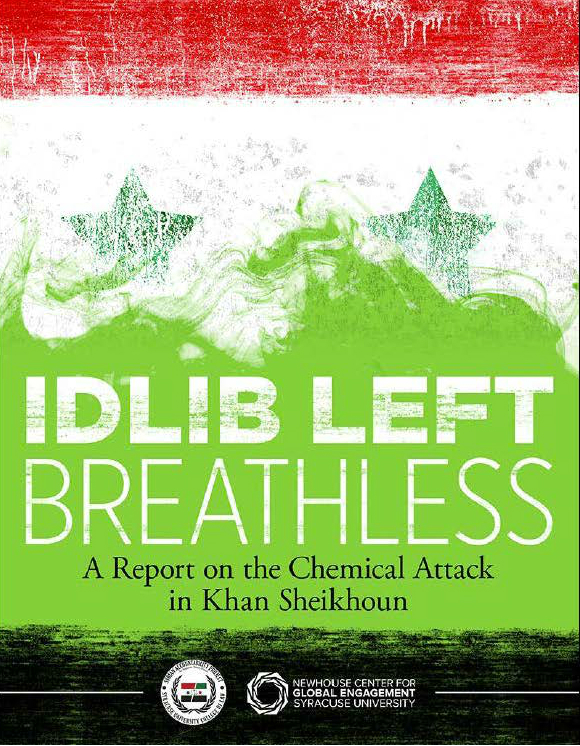| Atrocity Alert, No. 51, 19 April 2017 | No Images? Click here | |
Atrocity Alert is a weekly publication by the Global Centre for the Responsibility to Protect highlighting and updating situations where populations are at risk of, or are enduring, mass atrocity crimes.
|
| Syria
On 14 April at least 126 people, including over 60 children, were killed in an attack targeting a convoy of evacuees from the besieged pro-government towns of Fouah and Kefraya. No one has claimed responsibility for the car bomb at a checkpoint in Rashidin where a handover of evacuees was due to take place. In an 18 April Press Statement the UN Security Council (UNSC) labeled the attack an act of terrorism. The government, and many Syrian opposition organizations, have condemned the attack. The evacuees were being transferred under a local ceasefire agreement whereby the mainly Shia residents of Fouah and Kefraya, who have been besieged by opposition forces, would be evacuated in return for safe passage for residents from the mainly pro-opposition towns of Madaya and Zabadani. It was estimated that more than 30,000 people would be relocated during the exchange. Any local ceasefire agreements reached between the Syrian government and opposition parties that result in the involuntary transfer of civilian populations constitute a violation of International Humanitarian Law (IHL). However, in response to the war crime at Rashidin, the UNSC should demand UN access in order to monitor any voluntary evacuations and ensure the well-being of civilians. The UNSC previously demanded similar access for UN monitors to eastern Aleppo via Resolution 2328. The attack on evacuees in Syria came two days after Russia vetoed a UNSC draft resolution that would have condemned the 4 April sarin gas attack in Khan Shaykhun and obligated the Syrian government to comply with recommendations of the Organization for the Prohibition of Chemical Weapons Joint Investigation Mechanism. The 12 April vote marked Russia’s eighth veto of a draft resolution regarding the situation in Syria since the conflict began in 2011. Bolivia also voted against the draft resolution, while China, Ethiopia and Kazakhstan abstained. Ten UNSC members voted in favor of the resolution. By vetoing an impartial international investigation into the deadly attack at Khan Shaykhun, Russia has weakened the global prohibition of chemical weapons under international law.
|
Photo credit: Reuters Media
UN Photo/Manuel Elias
|
| Democratic Republic of the Congo
The UN has discovered 17 additional mass graves in the Kasai Central Province of the Democratic Republic of the Congo (DRC), bringing the total number documented in the Kasai region since January to 40. As noted in Atrocity Alert of 29 March, violence between security forces and the Kamuina Nsapu militia poses an escalating risk to civilians in the region, with more than 400 people killed since last August. The UN’s Joint Human Rights Office in the DRC (UNJHRO) and UN Police investigated the latest mass graves, which were reportedly dug by members of the DRC’s armed forces (FARDC) after clashing with presumed militia members between 26-28 March. At least 74 people, including 30 children, were killed during the fighting. During the same week, FARDC soldiers reportedly shot dead 40 people, including 11 children, during door-to-door searches for militia members in Kananga. It is essential that the DRC government conducts credible investigations into these killings and takes expeditious action to diffuse the conflict in the Kasai region. The government should also actively cooperate with UNJHRO investigators and facilitate their access to all mass grave sites. Any members of the FARDC proven to have participated in unlawful killings should be held accountable, regardless of their rank.
|
Photo Credit: Aaron Ross, Reuters
|
| Connect With Us | ||
|
|
||
| Global Centre for the Responsibility to Protect Ralph Bunche Institute for International Studies The Graduate Center, CUNY 365 Fifth Avenue, Suite 5203 New York, NY 10016, USA Phone: +1 212-817-1929 Copyright © 2017 Global Centre for the Responsibility to Protect |
|
| Preferences | Unsubscribe | |
 The paper details the April 4, 2017, attack that killed at least 87 people and injured more than 500. The paper offers compelling evidence that the gas used in the attack was the nerve agent sarin, one of the most potent and fast-acting chemical weapons, banned under international law ever since the 1993 Chemical Weapons Convention.
The paper details the April 4, 2017, attack that killed at least 87 people and injured more than 500. The paper offers compelling evidence that the gas used in the attack was the nerve agent sarin, one of the most potent and fast-acting chemical weapons, banned under international law ever since the 1993 Chemical Weapons Convention.
